
It’s 22BC and we’re somewhere in Germany, on the northern border of the Roman empire near Frisia. Soldiers are going about their business, cleaning shields and helmets, chatting and laughing, and further along the sandy dune, under the high sun, combat training is taking place.
Enter Marcus Gallo, Grumio, and Jason Brindisi – accidental soldiers about to fight a Roman war. And for what? Because they thought joining the army in peacetime would bring them fame, food, wealth and perhaps most importantly – for Jason at least – women.
But, as with all things these boys try, it doesn’t quite work out that way. Peace is short, and now – as they are about to find out from the formidable commander – they’re on the frontline of the “Roman f***ing army” as the so-called barbarians invade.
Except it’s not Frisia, but Wales and the year is 2022. The sun was real though, blazing hot, lucky really for a country known for rain.
After two years of pandemic-caused delays Plebs, ITV2’s ribald Roman sitcom, was shooting again, but this time it’s not an episode but a feature-length final hurrah. Yes, after nine years, five seasons, 36 episodes and a handful of comedy award nominations it’s all coming to an end.
“Don’t expect a blaze of glory,” Sam Leifer, the director, tells me on set as we watch monitors in a small tent.
Was it ever going to be a blaze of glory? Is glory a word you can even use when talking of these boys we’ve grown to know so well? I can’t remember a single moment of glory in the series, and any I can conjure up are very short-lived. No this isn’t Blackadder going over the top on the Western Front at the end of “Goodbyeee”. This is comfortingly on-brand – a group of average and well-meaning lads just getting by the best they can and usually failing to achieve their desires.
The idea for Plebs came to Leifer and co-creator Tom Basden almost 14 years ago.
“I studied classics at university, so I knew quite a lot about ancient Rome,” says Leifer. “And it was coinciding with a time where I was about ready to write about the s*** that had happened to me, and for Tom the shit that happened to him, when we were in our early twenties and living in Kilburn and Kentish Town respectively.”
But a twentysomething flat-share sitcom was a hard sell. There was no hook – so the pair squished the ideas together.
“I had this image of guys walking slow motion through the ancient Roman Forum in their tunics to a ska soundtrack,” says Leifer. And this became the foundation idea for Plebs: the opportunity to explore the funny things that happened to Leifer and Basden in their twenties but with every episode relevant in some way to ancient Rome.
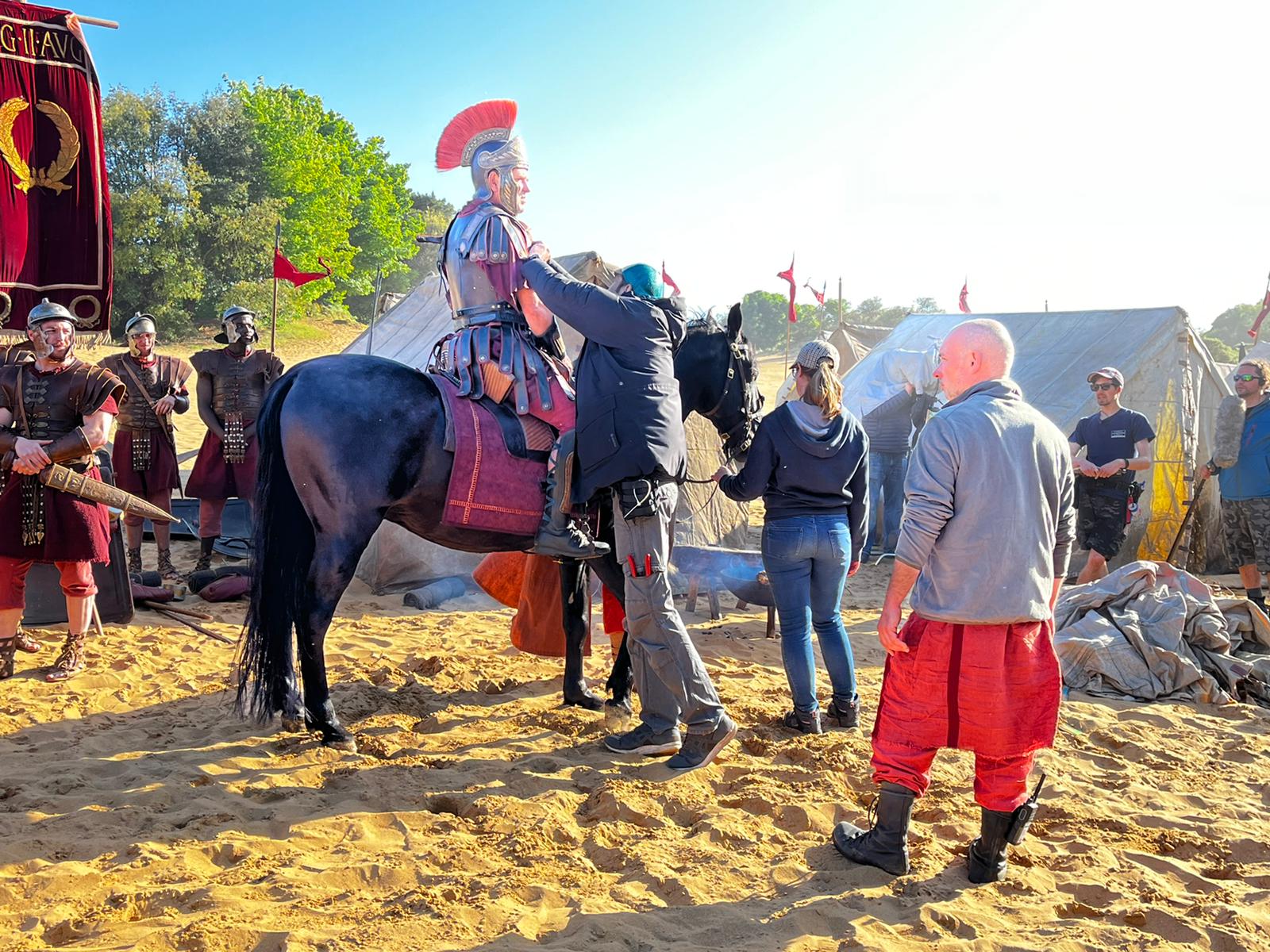
“Using the Roman backdrop gave it a bit of colour,” says Leifer, “but we were actually using that world in order to also make a slightly larger point that nothing really changes. I guess it’s a slightly bleak worldview, but it’s probably one that I subscribe to: that human nature is human nature.”
That’s perhaps what sets Plebs apart from other depictions of ancient Rome even if it does draw comparisons to Up Pompeii!. From other series and movies, you get a good impression of emperors and aristocrats, politicians and the wealthy. But what about the ordinary citizen of Rome, what about the young people? Why wouldn’t a bunch of twentysomethings in Rome not be the same as a bunch now; driven by the same mundane desires? Namely getting laid, partying, and trying to make a success of themselves while paying rent to their nefarious landlord.
“Desperate young men are always desperate young men,” says Leifer. “It doesn’t matter whether they’re wearing shoe necks or skinny jeans or tracksuit bottoms. They’re all going to be making the same mistakes.”
Comedy was always the most important thing. But if we can use the historical accuracy to either enhance the comedy or enhance the feeling of authenticity then that’s great
The first idea was called “Barnabus: Roman Playboy” but soon the attention was drawn away from one main guy and onto a group and the new name, Plebs, took over.
The show was green-lit in 2011 by ITV who were specifically looking for shows about guys at the time, and so it all began.
On set in Wales, under the harsh sun. Tom Basden makes sure I get a spray of sun cream over my face and arms. He’s not due in a scene for a while but is dressed in full armour and ready: hair slicked in a greasy parting, the little nub of a beard which he tells me is real and that his wife hates it when he grows it.
I ask him about my favourite episode, starring Shaun Williamson (Barry from Eastenders) called “The Best Men.” Basden laughs recalling the episode in hushed tones so as not to distract the cinematographer in the tent alongside Leifer.
“I actually had a friend like that,” he says referring to Williamson’s character, a lonely, chariot-driving instructor who shoehorns his way onto Aurelius’s stag do in series two. “I mentioned my stag do to this friend and he said ‘I’m great on a stag, you won’t regret bringing me along, oh I’m great on a stag’. And I just thought it was such a funny thing to say.”
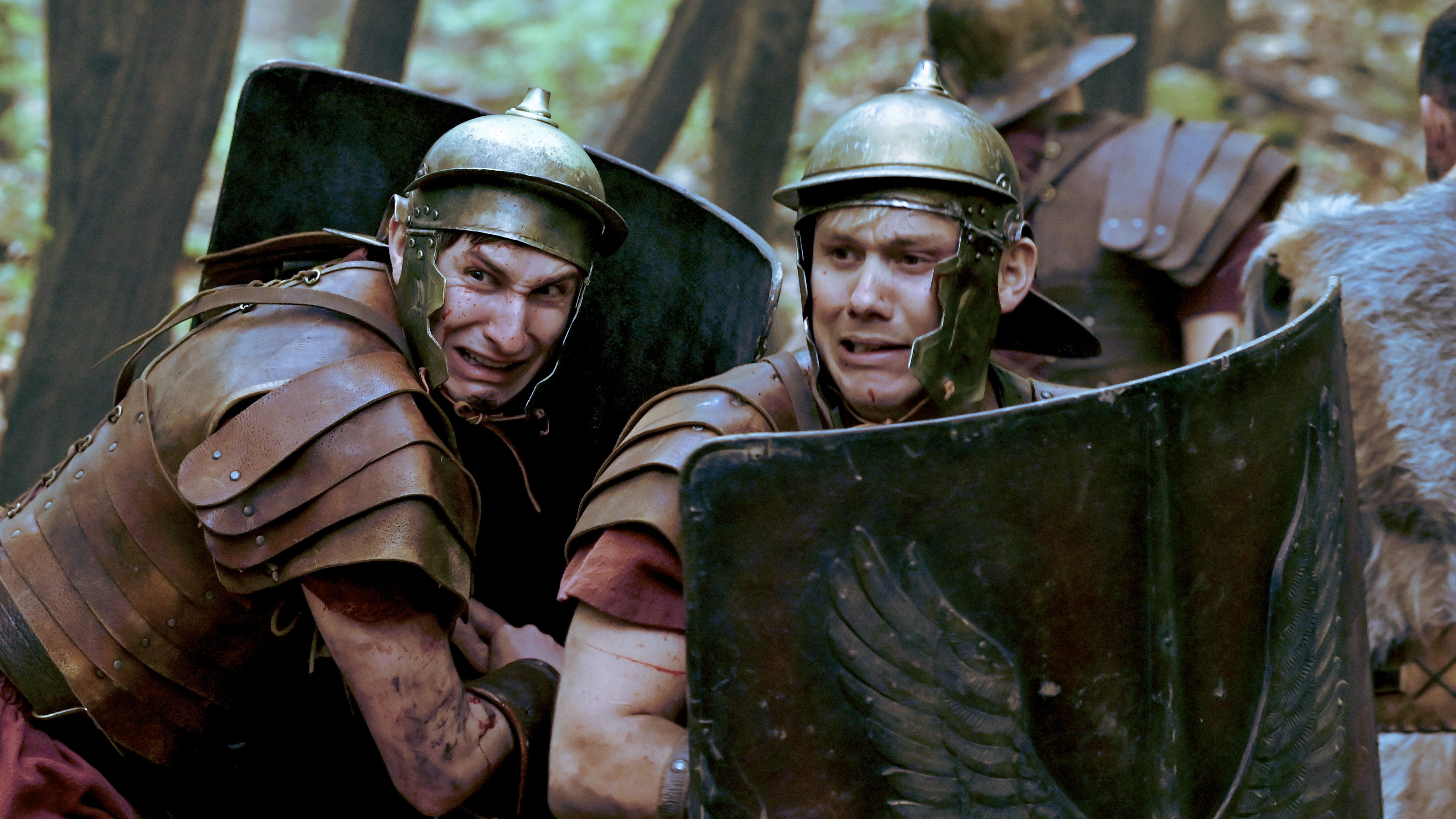
“That episode also uses my experience of being asked to be someone’s best man,” says Leifer overhearing us. “I was asked by this guy I barely knew to be his best man, and I just thought ‘do you not have anyone else?’” The pair laugh.
This is the bones of Plebs, a foundation of something that actually happened to Leifer or Basden mixed with something that makes it specifically Roman, but how accurate was the world they created?
“Tom and I have always said that comedy was always the most important thing,” says Leifer. “But if we can use the historical accuracy to either enhance the comedy or enhance the feeling of authenticity then that’s great.”
An example he gives comes from the new feature-length episode titled Plebs: Soldiers of Rome. He tells me had they not known that a man needed 10 fingers to be in the army, then they would not have been able to put in a scene where Marcus tries to cut off his pinkie finger to get out.
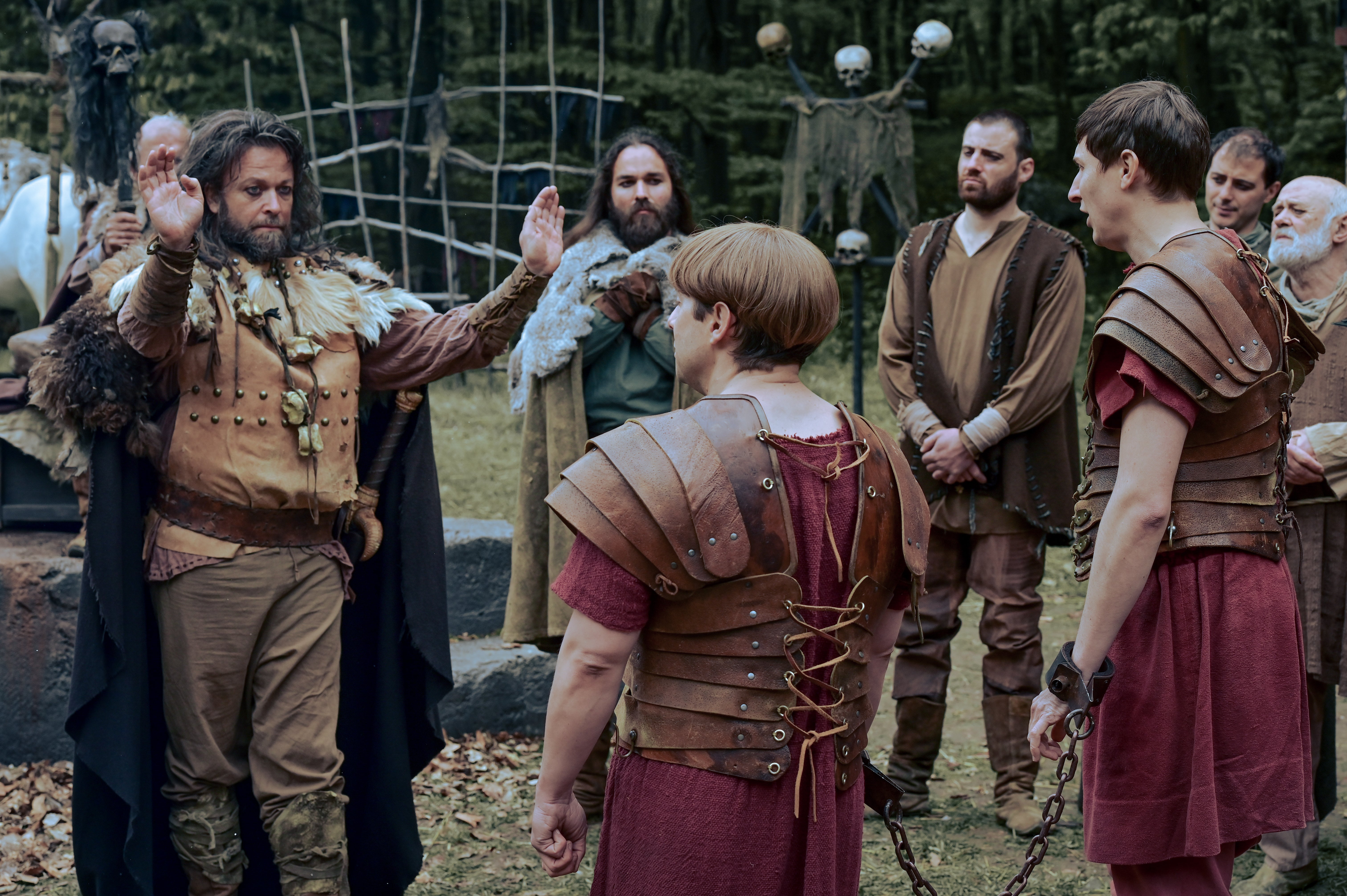
Meanwhile, there is an episode called “Bananae” in series one where bananas are brought to Rome for the first time which absolutely did not happen. But the pair thought it would be funny to have the first slip on a banana skin joke “in history”.
“Everyone watching it will not think that this is a documentary,” says Leifer. “I think what’s nice is that the show’s been received really well in the academic community. No one has ever gone, ‘well, that wouldn’t happen’, because they know that there’s just about enough historical accuracy to show that we know what we’re doing and we’re deliberately picking and choosing.”
At lunchtime in Wales, I’m sat on a wooden stump eating with the actors of Grumio, Jason and Aurelius in full costume – a surreal moment for me as a long-time fan of the show.
What are we talking about? Well, Basden is giving the others a riddle to solve about people wearing hats in a room. It leads to jokes, laughter, insults: nothing ever changes as Leifer says – boys will be boys.
And it is this idea of timelessness also influenced the music choice. If ever you’ve watched Plebs you’ll know its distinctive soundtrack replete with ska music. This was a very deliberate decision.
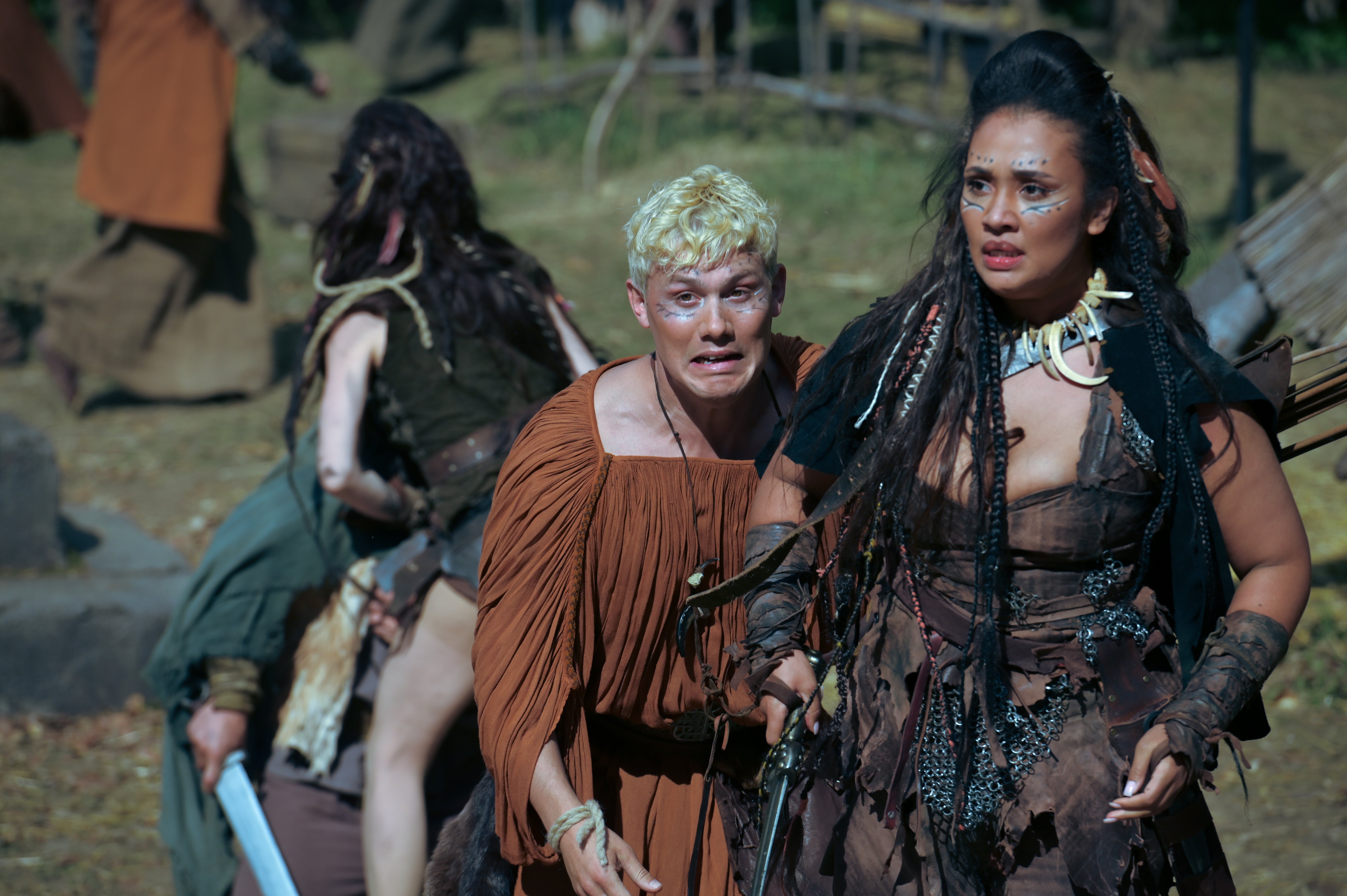
Firstly, Leifer got really into it while working on an earlier project, but also he had a strong feeling that using that contemporary music, as The Inbetweeners did, for example, dates a show very quickly. Put on an episode of The Inbetweeners now and the soundtrack of Indie music might give you a pang of nostalgia, but it also makes you realise how old the show is. Plebs’s soundtrack doesn’t date it at all, it could have been made at any time – post-ska of course.
Secondly: “In ancient Rome, the music of the time is first of all so unknown,” says Leifer, “If you look at the music in Rome, the HBO/BBC series, which tried to be authentic, it’s just not funny at all. It’s just quite weird plinky plonky stuff and flutes and lyre music. I just wasn’t going to go for that.”
Ska music is cool, he says, it has its own connotations and it worked. So well, in fact, that Trojan Records, the famous ska label asked if they could release a Plebs soundtrack, a compilation of the songs they used (most of which came from Trojan records in the first place) and the songs made specifically for Plebs including the theme song which was produced by Oli Julian and performed by the late, Jamaican reggae singer Michael Prophet.
It might sound like it’s from the 1970s and repurposed, but it was actually recorded around 2012.
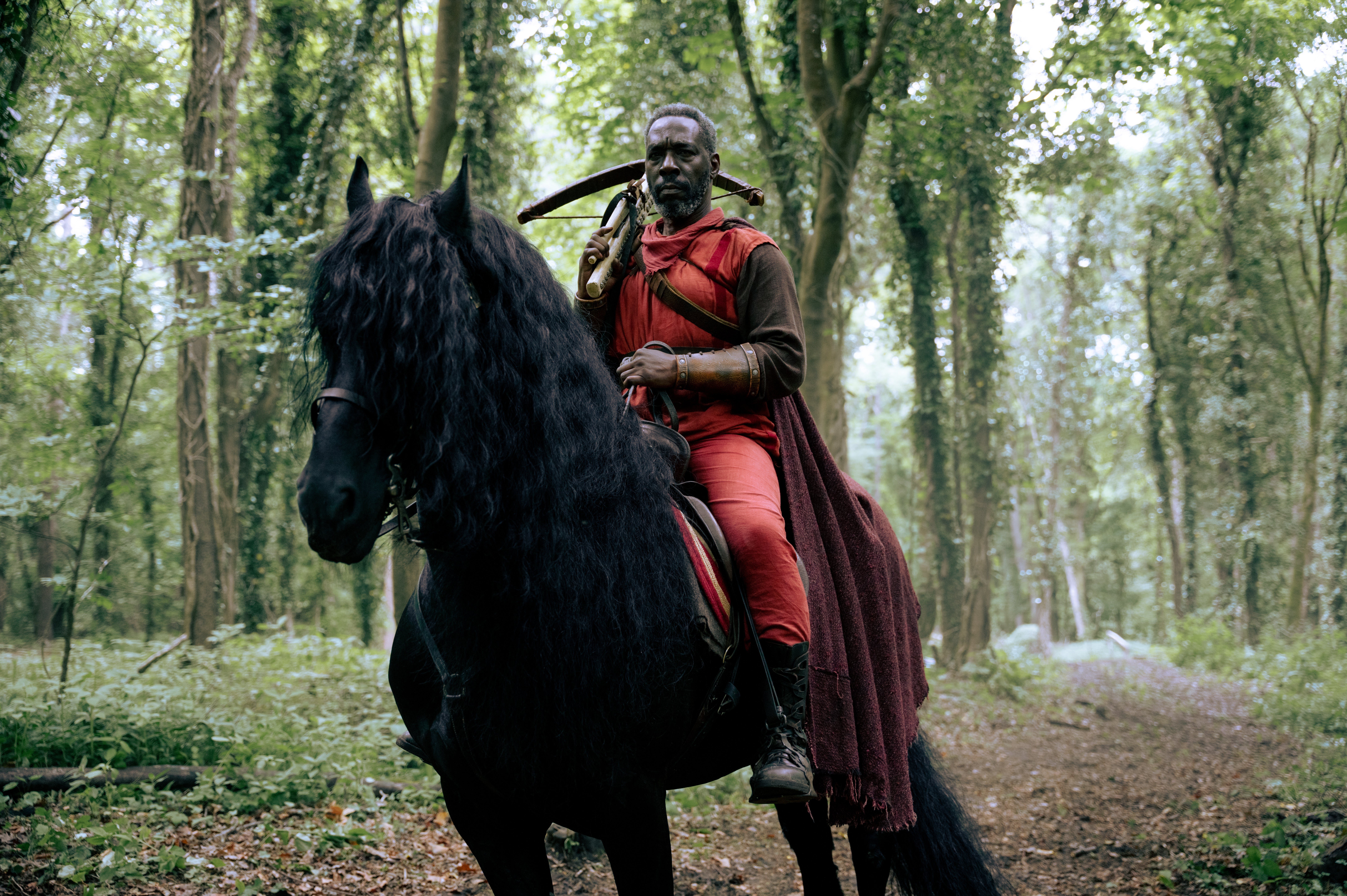
“Prophet came into the recording studio with a big suitcase full of hats,” Leifer remembers laughing. “His process was to listen to the music and then choose a hat that would be the right hat to record the song to and he says: ‘OK for this one it’s gotta be a trilby’ and it was very cool and the trilby looked really good on him and he sang the song and then left with his suitcase full of hats. We wondered if he always chooses the trilby and the suitcase is just for a sense of theatre. That’s great.”
But of course, the show is not complete without its cast. Since the beginning, there was always Tom Rosenthal who plays Marcus, the sensible, self-preserving one. There was always his slave Grumio too, played by Ryan Sampson. The third member of the group was first Stylax Eurystacles, the self-conscious womaniser, but after his actor, Joel Fry, left the show (and Stylax was killed off by a being crushed by a lump of stone) ladies man Jason Brindisi took over, played by Jonathan Pointing.
On set, enjoying the sun sat down between takes, Sampson, Pointing and Rosenthal tell me that while they’re sad to see the show end it feels like the right time to move on. Certainly, Rosenthal and Sampson have been making this show for the better part of nine years now and all three have other acting commitments and projects.
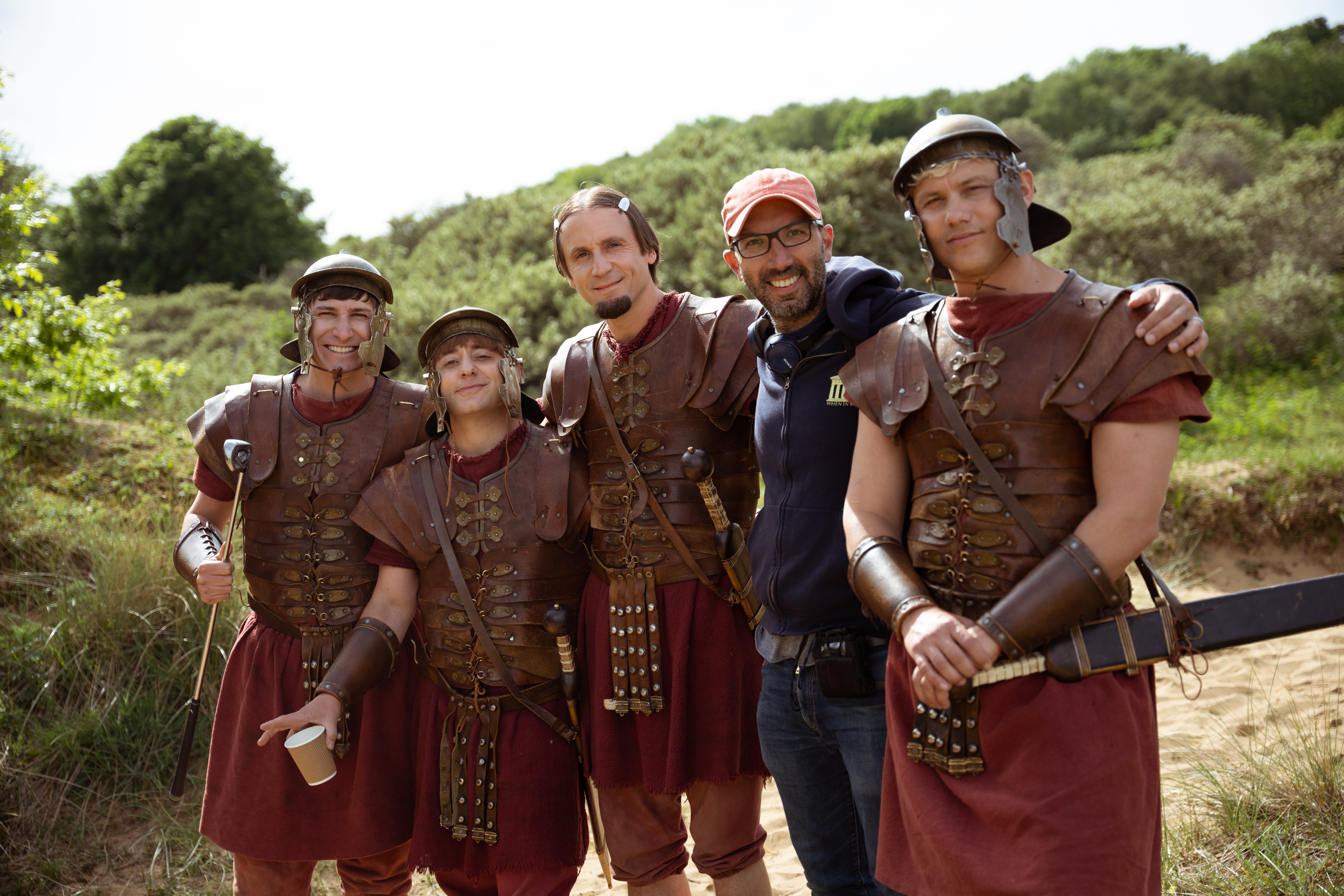
When production of this final episode was stalled due to Covid in 2020, there was a moment when the stars thought that maybe the final episode would not be made at all. That would have been a shame, they say, so having the chance to make this episode and give the show the send-off it deserves feels very lucky.
Alongside the main cast was a rolling roster of cameo appearances including Danny Dyer, Miriam Margoyles, Tony Robinson, Simon Callow and Aisling Bea.
Who was Leifer’s favourite?
“Danny Dyer,” he says. “When we were writing the gladiator episode, we always thought our dream casting as the gladiator was Danny Dyer. But we never thought that he would audition for it and then he absolutely smashed it. He was so perfect for it and such fun to have on set.”
Plebs is finally coming to an end after a good run. Leifer, Basden and the cast are now looking forwards. The director says he’s never one to dwell on things. He covered all the stories he wanted to and knew the time was right to end it even though ITV were keen for more.
Leifer and Basden always knew how they wanted it to end – the one topic rarely touched on throughout the series but perhaps the most famous symbol of ancient Rome: its army.
“If we were ever given an opportunity to do something that was feature length, we wanted it to be about the boys going to war and anyone can watch it, even if they haven’t seen the series,” says Leifer. “The whole thing’s been a dream come true and such a privilege.”
What happens to the boys in Germany? I can’t say, you’ll have to find out for yourself. But expect much of the same: desperate young men are always desperate young men.
‘Plebs: Soldiers of Rome’ will be available to stream on ITVX on Thursday 8 December







